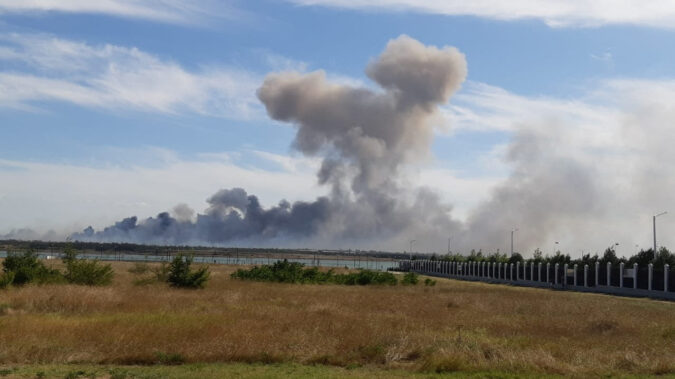In a dramatic turn of events, Russia has pointed fingers at the United States, accusing them of bombing Crimea. This bold allegation has sparked international attention, highlighting a striking irony given Russia’s controversial annexation of Crimea from Ukraine in 2014. Russia is claiming that at least four people are dead and over 100 injured.
The annexation of Crimea by Russia in 2014 was widely condemned by the international community as a blatant violation of Ukraine’s sovereignty. Despite protests and sanctions, Russia proceeded with what it termed a “reunification” of Crimea, citing historical and strategic reasons. This move was met with swift and stringent measures from Western nations, including the United States, which condemned Russia’s actions and imposed sanctions that continue to impact diplomatic relations to this day.
Fast forward to the present day, and Russia finds itself accusing the United States of bombing Crimea. This accusation, steeped in geopolitical tensions and historical animosities, underscores the complexities of global power dynamics. It is a stark reminder of the audacity involved in such accusations, especially considering Russia’s own contentious history in the region.
In the realm of international politics, accusations and counter-accusations are not uncommon. However, Russia’s accusation against the United States regarding Crimea’s bombing carries a unique weight given Crimea’s troubled past and ongoing international scrutiny. As the situation unfolds, it remains to be seen how this latest accusation will impact diplomatic relations and geopolitical stability in the region.
The global community watches with bated breath as Russia and the United States navigate this latest episode of diplomatic friction. The accusation of bombing Crimea serves as a poignant reminder of historical grievances and contemporary power struggles on the world stage. As developments unfold, one thing remains clear: the echoes of history continue to reverberate in the corridors of international diplomacy.

